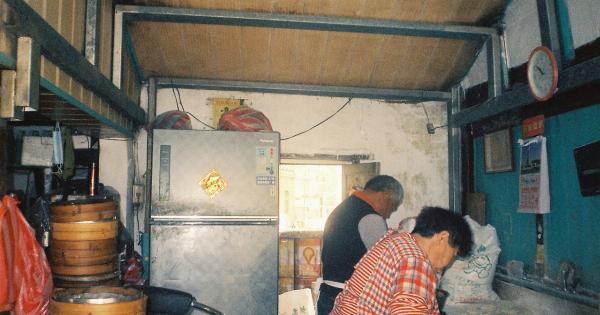The refrigerator is often considered the safest place in the kitchen. However, there are hidden dangers lurking in your fridge that can pose serious health risks to you and your family.
In this article, we will explore some of the most common health hazards that may be hiding in your refrigerator.
Bacteria
Bacteria are everywhere, and your refrigerator is no exception.
The fridge is an ideal breeding ground for bacteria, as it is usually kept at a temperature between 32 and 40 degrees Fahrenheit, which slows down bacterial growth but doesn’t necessarily kill them. Bacteria can contaminate food through cross-contamination or by being present in raw meat and then spreading to other foods.
Some types of bacteria can cause serious illnesses, including Salmonella, Listeria, and E. coli. These bacteria can cause food poisoning, gastrointestinal symptoms, and in severe cases, even death.
Cross-Contamination
Cross-contamination is a significant risk in the fridge. When food is stored incorrectly, bacteria from one food can spread to another.
This can happen when raw meat is placed next to ready-to-eat foods, such as fruits and vegetables, or if juices from raw meat drip onto other foods. To avoid cross-contamination, always store raw meat on the bottom shelf of the fridge, away from other foods.
Expired Food
Expired food can be dangerous, as it may contain harmful bacteria that can cause food poisoning. Check expiration dates regularly and throw away any food that has gone bad.
Don’t rely on appearance or smell, as some foods can look and smell fine but still be unsafe to eat.
Chemicals
Chemicals used to clean and disinfect your fridge can also be harmful if not used correctly.
Always follow the manufacturer’s instructions when using cleaning products, and make sure to rinse thoroughly to avoid leaving chemical residue on your food.
Plastic Containers
Plastic containers can be convenient for storing food in the fridge, but some types of plastic can be harmful. Plastic containers that contain BPA (Bisphenol A) can leach the chemical into your food if they are heated or scratched.
BPA has been linked to health problems, including cancer, fertility issues, and developmental problems in children. To avoid BPA exposure, use glass containers or those made from BPA-free plastic.
Unwashed Produce
Produce, such as fruits and vegetables, can also pose a risk if not stored or washed correctly. They can carry harmful bacteria like E. coli and Salmonella, which can cause food poisoning.
Always wash produce thoroughly before consuming, even if you plan on peeling it. Store produce in the refrigerator’s crisper drawer to keep it fresh.
Leftovers
Leftovers are a great way to save time and reduce waste, but they also come with some risks. If not stored correctly, leftovers can become contaminated with bacteria that can cause food poisoning.
Always store leftovers in airtight containers and label them with the date. Use them within three to four days, and heat them to at least 165 degrees Fahrenheit before eating to kill any bacteria that may have grown.
Soda and Fruit Juice
Soda and fruit juice can be high in sugar, which can lead to health problems like obesity, diabetes, and tooth decay. They can also contain artificial additives and preservatives that can be harmful to your health.
Consider alternatives like water or unsweetened tea instead.
Conclusion
As you can see, there are several hidden dangers lurking in your fridge that can pose serious health risks. To keep your fridge safe, always store food correctly, wash produce thoroughly, and check expiration dates regularly.
By taking these simple precautions, you can reduce your risk of food poisoning and other health problems linked to poor food storage and handling.






























